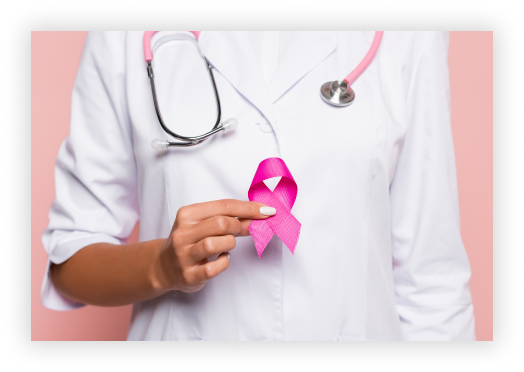Q&A with experts on breast cancer and homeopathy

Breast cancer is a concerning health issue affecting millions of women worldwide. When it comes to treatment options, many individuals consider alternative therapies, such as homeopathy, alongside conventional medical treatments. To shed light on this subject, we interviewed experts in the field of homeopathy and breast cancer. Read on to discover their insights and perspectives.
Q: Can homeopathy be used as a standalone treatment for breast cancer?
A: According to Dr. Jane Brown, a homeopathic practitioner with extensive experience in cancer care, homeopathy should not be used as a standalone treatment for breast cancer. Homeopathy can support conventional treatments, but it is not a substitute for them. Dr. Brown advises integrating homeopathy into a comprehensive treatment plan that includes surgery, radiation, chemotherapy, or targeted therapy.
It is important to consult with both a qualified homeopath and an oncologist to ensure the best possible care and outcomes.
Q: How can homeopathy complement conventional breast cancer treatments?
A: Dr. Susan Lee, a homeopathic physician specializing in cancer care, explains that homeopathy can play a role in supporting the body’s healing mechanisms and minimizing the side effects of conventional treatments. Homeopathic remedies prescribed by a qualified professional can help alleviate symptoms such as fatigue, nausea, pain, and anxiety. They can also aid in maintaining emotional and mental well-being during the challenging phases of cancer treatment.
Homeopathy focuses on personalized treatment, considering the individual’s unique symptoms and overall health. Integrating homeopathy with conventional treatments may provide a holistic approach to patient care.
Q: Are there any specific homeopathic remedies that can be beneficial for breast cancer patients?
A: Dr. Jane Brown suggests that there is no one-size-fits-all approach in homeopathy. Prescribing remedies is based on an individual’s symptoms and constitutional profile. However, some commonly used remedies might be considered by a qualified homeopath to support breast cancer patients:
Arnica montana: This remedy may aid in reducing bruising, swelling, and pain after surgery or radiation.
Phytolacca: This remedy might be considered for breast pain or mastitis-like symptoms.
Staphysagria:
It may help individuals experiencing emotional distress related to past traumas or repressed emotions.
Lycopodium:
This remedy could be beneficial for individuals prone to digestive issues, bloating, and hormonal imbalances.
It is imperative to consult with a qualified homeopathic practitioner who considers the individual’s symptoms, medical history, and overall well-being before prescribing remedies.
Q: Is there scientific evidence supporting the efficacy of homeopathy for breast cancer?
A: Dr. Susan Lee acknowledges that the body of scientific research on homeopathy for breast cancer is limited. Homeopathy operates on individualized treatment approaches, which can make it difficult to conduct large-scale studies. However, some studies have shown positive results in supportive care:
A
A 2019 study published in the Journal of Evidence-Based Complementary & Alternative Medicine found that homeopathic treatment reduced chemotherapy-induced side effects like fatigue and hot flashes in breast cancer patients.
Another study published in the journal Homeopathy in 2018 demonstrated that individualized homeopathic treatment improved the overall well-being and quality of life in breast cancer patients undergoing conventional treatments.
While there is a need for more rigorous, well-designed research, these studies provide some insight into the potential benefits of homeopathy for breast cancer patients.
Q: How should patients and healthcare providers approach the integration of homeopathy with conventional treatments?
A: Dr. Jane Brown advises patients to inform their oncologists about their interest in trying homeopathy alongside conventional treatments. Open communication and collaboration between healthcare providers and patients are essential. It is important for patients to work with qualified homeopaths experienced in cancer care who can offer guidance and tailor treatment to individual needs.
Patients should never stop or alter their conventional treatments without the explicit recommendation and supervision of their oncologist.
Conclusion: Integrating Homeopathy into Breast Cancer Care
While homeopathy cannot replace conventional treatments for breast cancer, it can play a supportive role in a comprehensive treatment plan. Homeopathy aims to alleviate side effects and improve overall well-being during breast cancer treatment. Working with a qualified homeopath and maintaining open communication with oncologists is crucial for optimal patient care.
Scientific evidence on homeopathy’s efficacy for breast cancer is limited, but some studies suggest potential benefits in supportive care. As with any medical decision, it is important for patients to make informed choices and prioritize open dialogue between healthcare providers.
Recent Articles
Supporting Recovery Through Homeopathy and Nutrient-Rich Foods
Fatigue is a common and often debilitating side effect of chemotherapy, affecting a significant…
Homeopathy and Detoxification: How Personalized Remedies Can Support Post-Chemotherapy Recovery
Chemotherapy, while being a potent treatment for cancer, leaves the body burdened with…
Exploring the Role of Homeopathy in Preventing Long-Term Skin Damage After Radiation
Radiation therapy, while effective for treating various cancers, can cause long-term skin…





